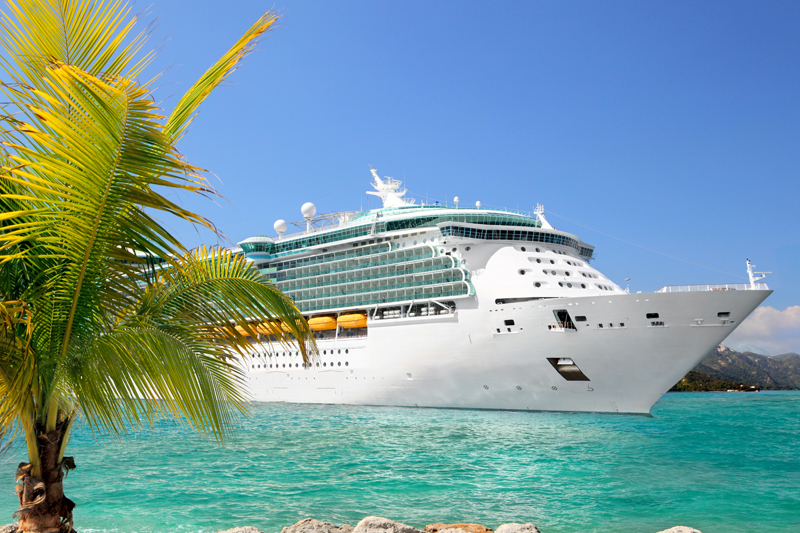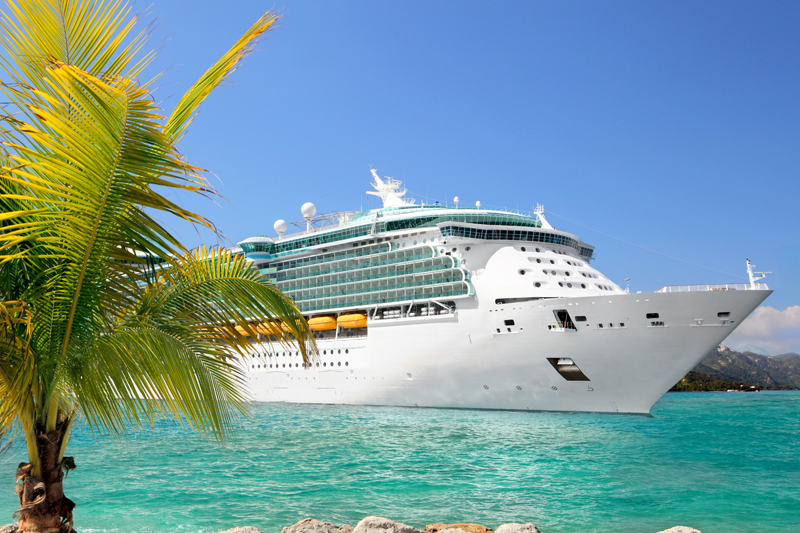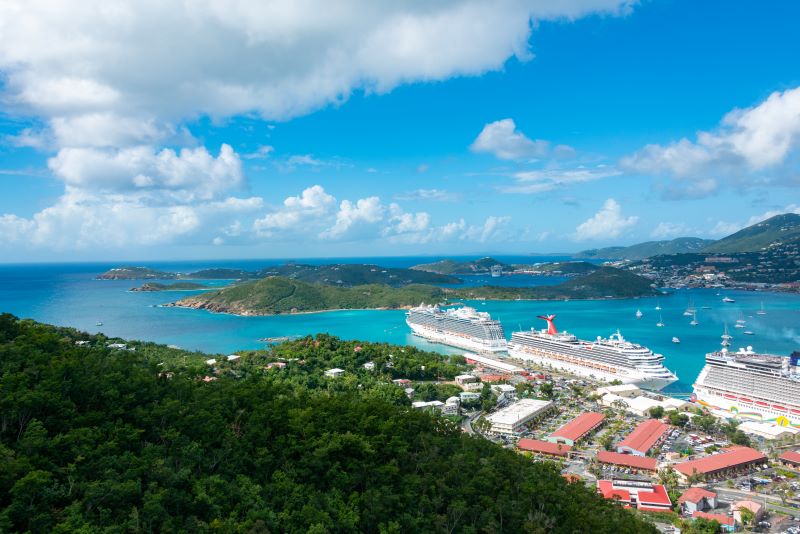7 Tips For Handling Flight Delays

Choosing the right flights for trips is always key. It's even more critical when planning a vacation, since missing your flights can wipe out sought after vacation days and lead to significant added expenses. This is particularly true for cruises, where flight delays and cancellations can result in missing the ship.
As more passengers are traveling by air, it’s important to take a closer look at your flight plans. Airlines are operating fewer flights and a reduced number of planes and staff are available. Severe summer weather including major thunderstorms and record high temperatures has been causing major disruptions as well.
Flight issues are also common during the winter months through early spring, when snow and hazardous weather can be a frequent occurrence. It's important to keep the possibility of bad weather in mind and plan accordingly. Here are seven flight planning tips that will help get you avoid airline delays and get you to your cruise on time.
1. Work With A Travel Advisor. Working with a good travel agent is helpful whenever you’re planning a vacation, but they are even more important this year. A travel advisor can review all possible flights to your vacation destination and help you choose the airline with the most available options. This will provide you with the greatest number of rebooking options if flight delays or cancellations arise. Travel advisors can provide valuable assistance such as keeping clients posted on itinerary changes, helping to reschedule flights as needed, and locating overnight accommodations if cancellations or significant delays occur.
2. Take Direct Flights. It’s always wise to avoid connections if possible, particularly in this year’s travel environment. If you must take multiple flights to reach your destination, make sure to allow plenty of time for connections. While airlines often consider a 40-50 minute connecting time between flights to be legal, that will provide little cushion if there’s a weather or mechanical delay. In the current environment, it can be wise to allow at least two hours for connections. This is particularly true when traveling with children, as it often takes a longer time to get from gate to gate. If you have a choice of connection cities, stay away from those prone to significant weather and traffic delays. These include Newark, New York’s LaGuardia and JFK airports, Chicago, Atlanta and Denver.
3. Choose The Best Time To Fly. Afternoon thunderstorms and high temperatures can cause considerable travel delays during the summer months. Morning flights are the best option for avoiding these issues, particularly if connections are required. Some airlines and flights currently have better on time performance, while others are showing a pattern of significant flight delays and cancellations. Before booking your flights, check out each of your option’s arrival statistics. Some airlines and online booking engines provide flight statistics. The FlightStats.com and Flightaware.com websites can also be good sources of information. A good travel agent can provide insights as well.
4. Travel With Carry-on Luggage. Avoid checking luggage if at all possible. This will allow you to be more flexible if your flight severely delayed, as airlines will not change reservations involving checked luggage. If your flight is cancelled, traveling solely with carry-on luggage will also help you to avoid lost suitcase headaches that can arise if you have to be rebooked on another flight.
5. Opt For Larger Planes When Possible. Heat waves and record summer temperatures are causing issues for smaller planes at some airports this year, particularly for flights originating or stopping in Las Vegas. Some regional jet aircraft including Bombardier CRJ and Embraer planes can only operate a maximum temperature of 118 degrees, while large Boeing aircraft can handle weather up to 130 degrees.
6. Purchase Travel Insurance. Make sure to purchase trip insurance to protect your vacation investment in case of unforeseen air and transportation snafus, family illness, or other issue. When buying your insurance, however, it’s important to make sure that your flights are wrapped into the coverage. Some vacationers buy insurance directly from their cruise line when purchasing their cruise and then obtain their own flights separately. When a problem arises with their flights, they can find that their trip insurance only covers the cruise. Make sure you understand what is covered by the trip insurance policy you’re purchasing and read the fine print carefully. For best results, call the travel insurance company directly and ask questions over the phone to understand intricate coverage issues.
7. Monitor Weather Predictions Continually. Sometimes weather can cause even the most carefully arranged plans to go awry. As your departure date gets closer, monitor weather conditions carefully. If it appears that a storm may affect your travel plans, check with your airline to find out what options are available. These may include departing a day early if not doing so already or leaving on an earlier flight. Be proactive. Do not wait for the airlines to contact you. By that time, many of the best flight options may already be gone. If your flight is not cancelled, the airlines may not contact you at all. It is your responsibility to decide what’s best for your specific circumstances and take the appropriate steps to arrive at your cruise vacation on time. Make sure to sign up for your airline's notification alerts and monitor their website so you'll know what's going on as soon as possible.
As more passengers are traveling by air, it’s important to take a closer look at your flight plans. Airlines are operating fewer flights and a reduced number of planes and staff are available. Severe summer weather including major thunderstorms and record high temperatures has been causing major disruptions as well.
Flight issues are also common during the winter months through early spring, when snow and hazardous weather can be a frequent occurrence. It's important to keep the possibility of bad weather in mind and plan accordingly. Here are seven flight planning tips that will help get you avoid airline delays and get you to your cruise on time.
1. Work With A Travel Advisor. Working with a good travel agent is helpful whenever you’re planning a vacation, but they are even more important this year. A travel advisor can review all possible flights to your vacation destination and help you choose the airline with the most available options. This will provide you with the greatest number of rebooking options if flight delays or cancellations arise. Travel advisors can provide valuable assistance such as keeping clients posted on itinerary changes, helping to reschedule flights as needed, and locating overnight accommodations if cancellations or significant delays occur.
2. Take Direct Flights. It’s always wise to avoid connections if possible, particularly in this year’s travel environment. If you must take multiple flights to reach your destination, make sure to allow plenty of time for connections. While airlines often consider a 40-50 minute connecting time between flights to be legal, that will provide little cushion if there’s a weather or mechanical delay. In the current environment, it can be wise to allow at least two hours for connections. This is particularly true when traveling with children, as it often takes a longer time to get from gate to gate. If you have a choice of connection cities, stay away from those prone to significant weather and traffic delays. These include Newark, New York’s LaGuardia and JFK airports, Chicago, Atlanta and Denver.
3. Choose The Best Time To Fly. Afternoon thunderstorms and high temperatures can cause considerable travel delays during the summer months. Morning flights are the best option for avoiding these issues, particularly if connections are required. Some airlines and flights currently have better on time performance, while others are showing a pattern of significant flight delays and cancellations. Before booking your flights, check out each of your option’s arrival statistics. Some airlines and online booking engines provide flight statistics. The FlightStats.com and Flightaware.com websites can also be good sources of information. A good travel agent can provide insights as well.
4. Travel With Carry-on Luggage. Avoid checking luggage if at all possible. This will allow you to be more flexible if your flight severely delayed, as airlines will not change reservations involving checked luggage. If your flight is cancelled, traveling solely with carry-on luggage will also help you to avoid lost suitcase headaches that can arise if you have to be rebooked on another flight.
5. Opt For Larger Planes When Possible. Heat waves and record summer temperatures are causing issues for smaller planes at some airports this year, particularly for flights originating or stopping in Las Vegas. Some regional jet aircraft including Bombardier CRJ and Embraer planes can only operate a maximum temperature of 118 degrees, while large Boeing aircraft can handle weather up to 130 degrees.
6. Purchase Travel Insurance. Make sure to purchase trip insurance to protect your vacation investment in case of unforeseen air and transportation snafus, family illness, or other issue. When buying your insurance, however, it’s important to make sure that your flights are wrapped into the coverage. Some vacationers buy insurance directly from their cruise line when purchasing their cruise and then obtain their own flights separately. When a problem arises with their flights, they can find that their trip insurance only covers the cruise. Make sure you understand what is covered by the trip insurance policy you’re purchasing and read the fine print carefully. For best results, call the travel insurance company directly and ask questions over the phone to understand intricate coverage issues.
7. Monitor Weather Predictions Continually. Sometimes weather can cause even the most carefully arranged plans to go awry. As your departure date gets closer, monitor weather conditions carefully. If it appears that a storm may affect your travel plans, check with your airline to find out what options are available. These may include departing a day early if not doing so already or leaving on an earlier flight. Be proactive. Do not wait for the airlines to contact you. By that time, many of the best flight options may already be gone. If your flight is not cancelled, the airlines may not contact you at all. It is your responsibility to decide what’s best for your specific circumstances and take the appropriate steps to arrive at your cruise vacation on time. Make sure to sign up for your airline's notification alerts and monitor their website so you'll know what's going on as soon as possible.

Related Articles
Editor's Picks Articles
Top Ten Articles
Previous Features
Site Map
Content copyright © 2023 by Nancy Schretter. All rights reserved.
This content was written by Nancy Schretter. If you wish to use this content in any manner, you need written permission. Contact Nancy Schretter for details.






